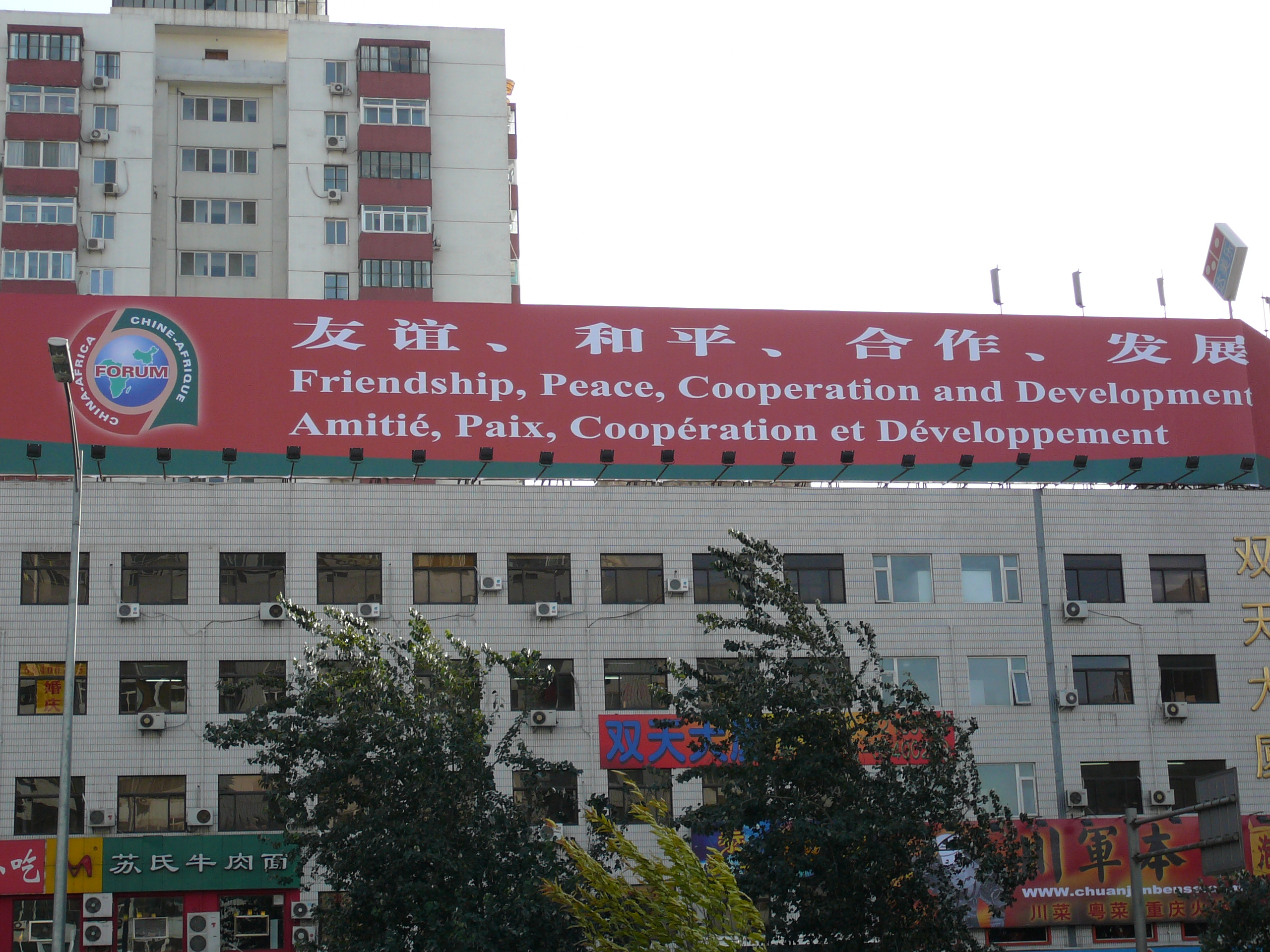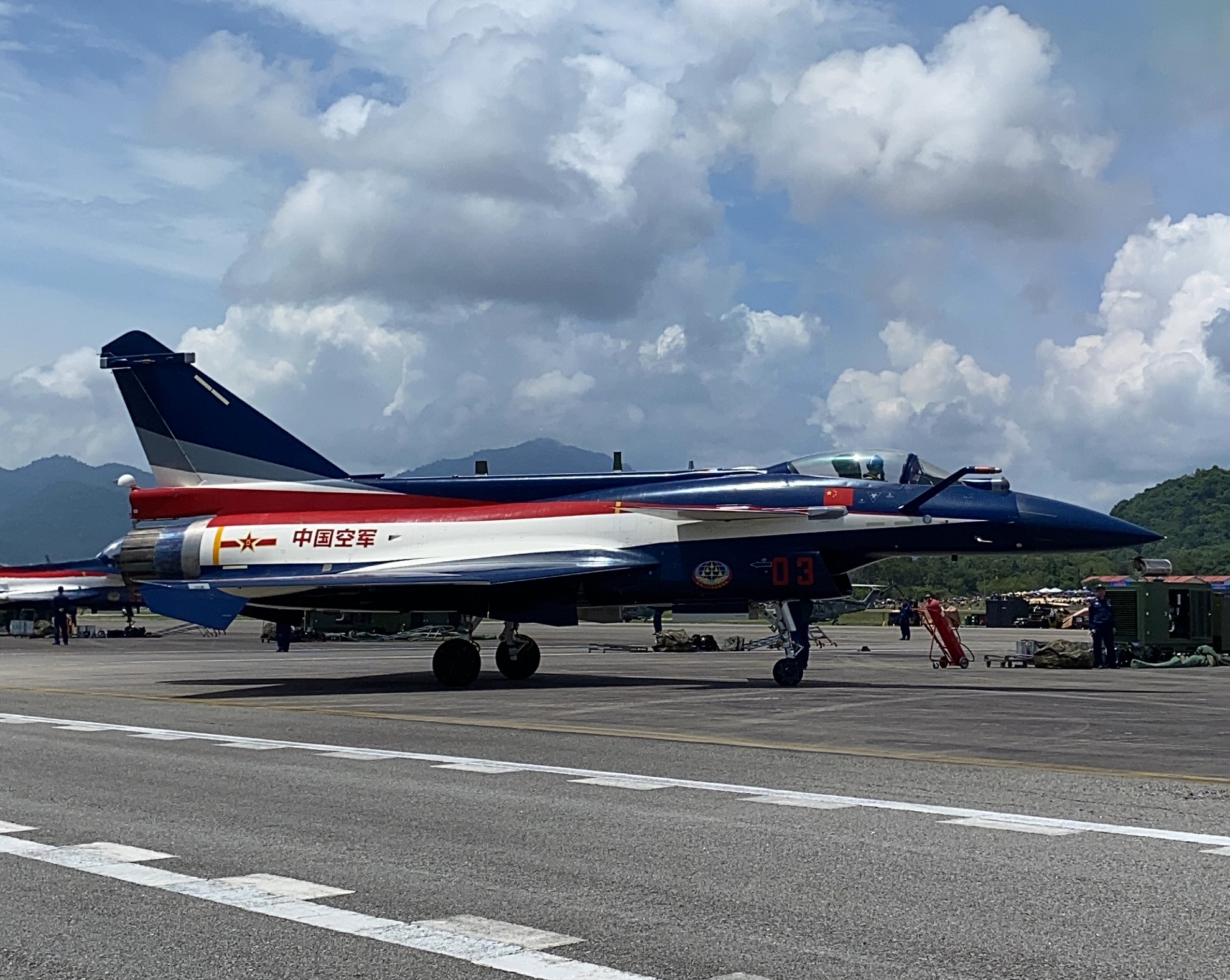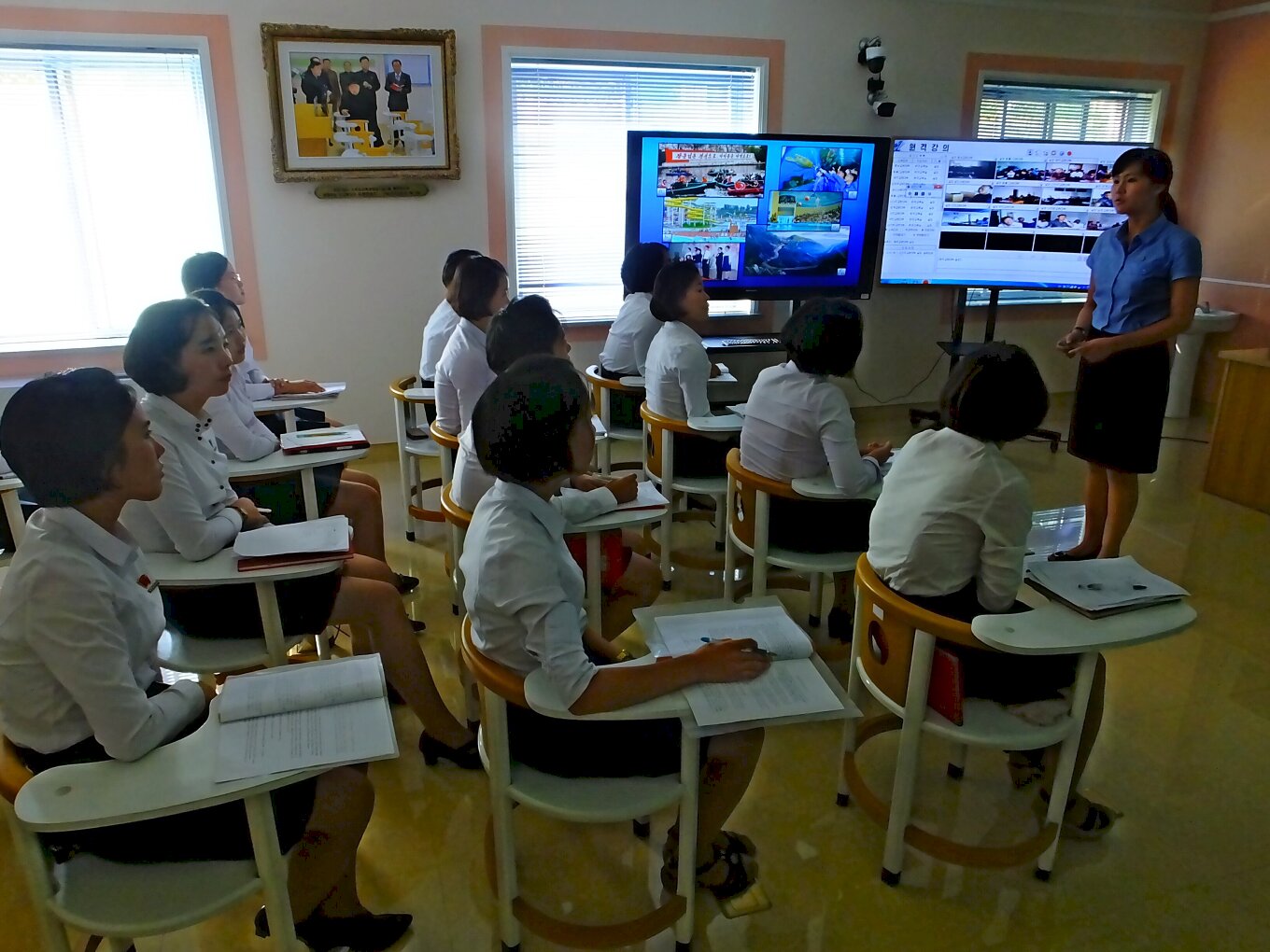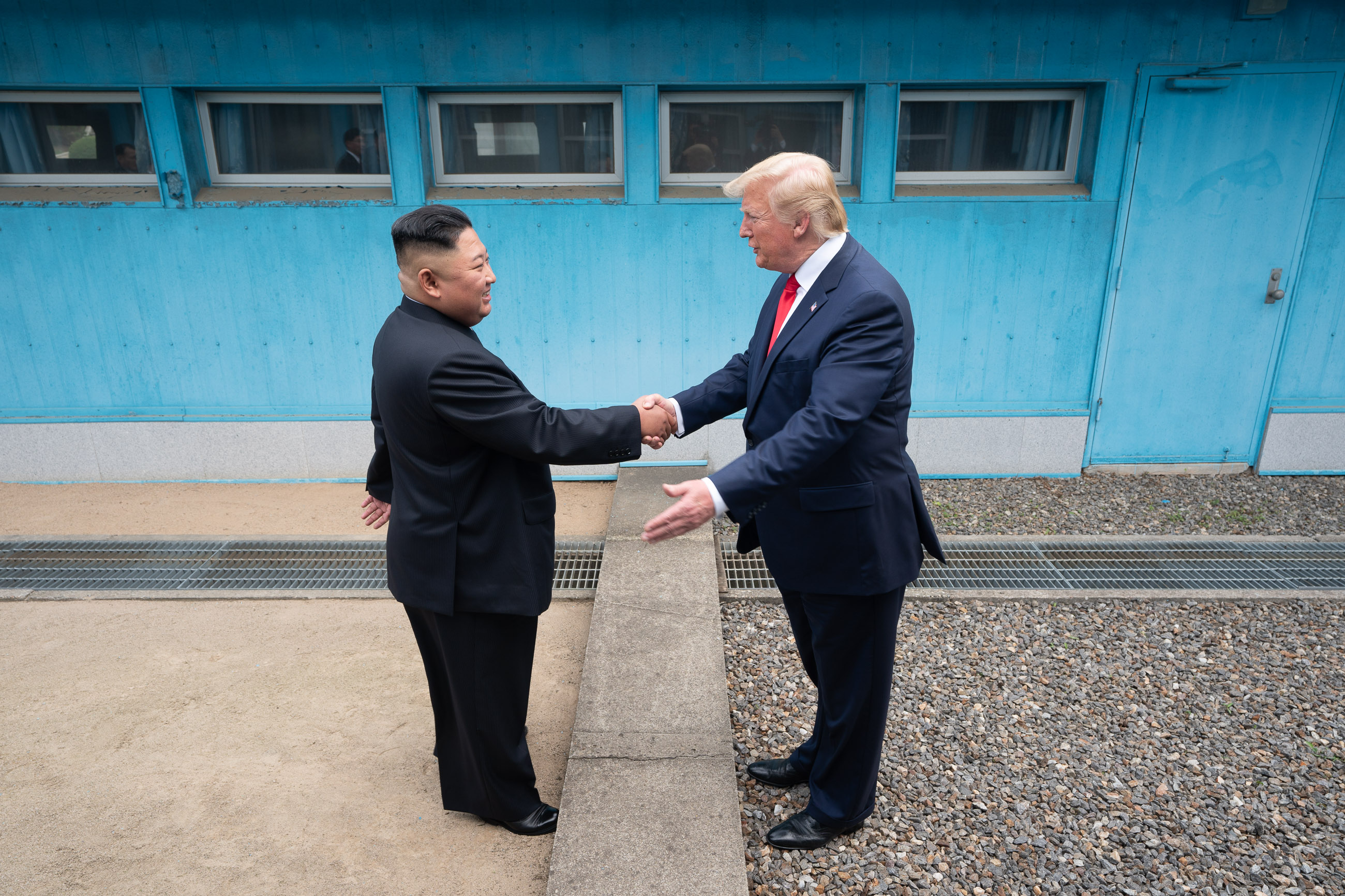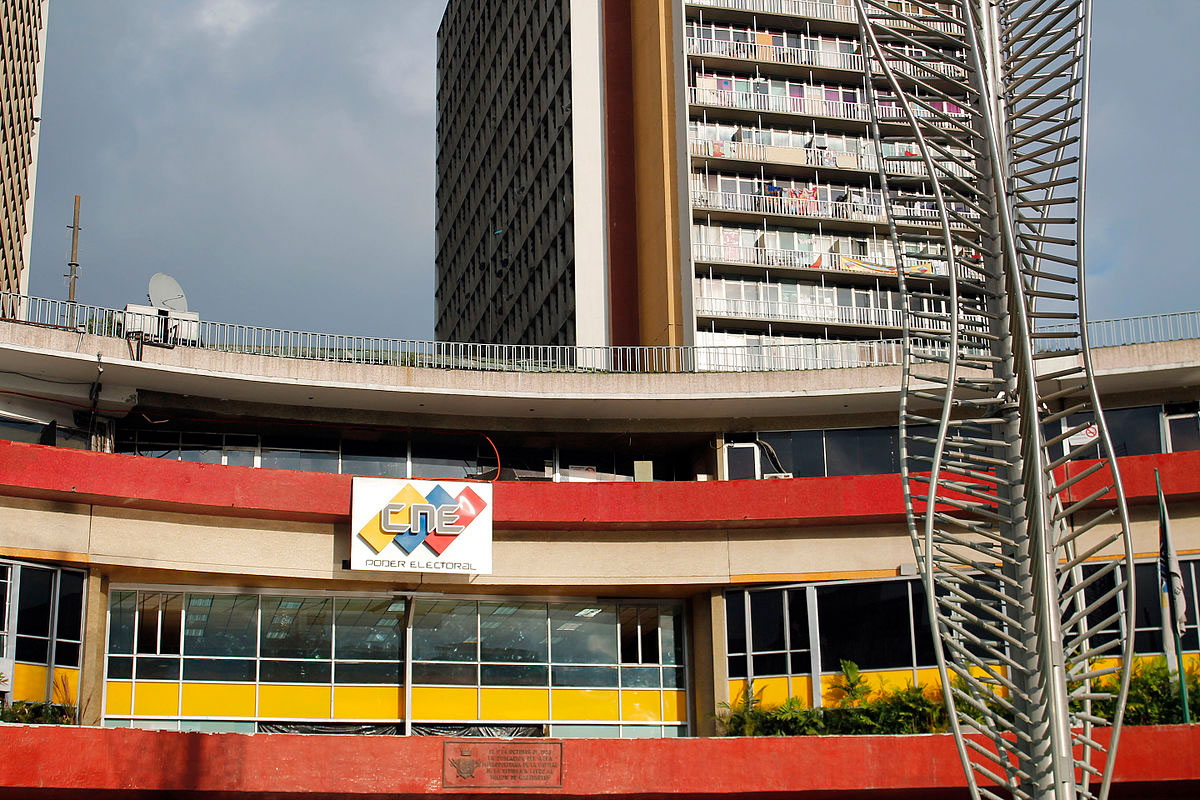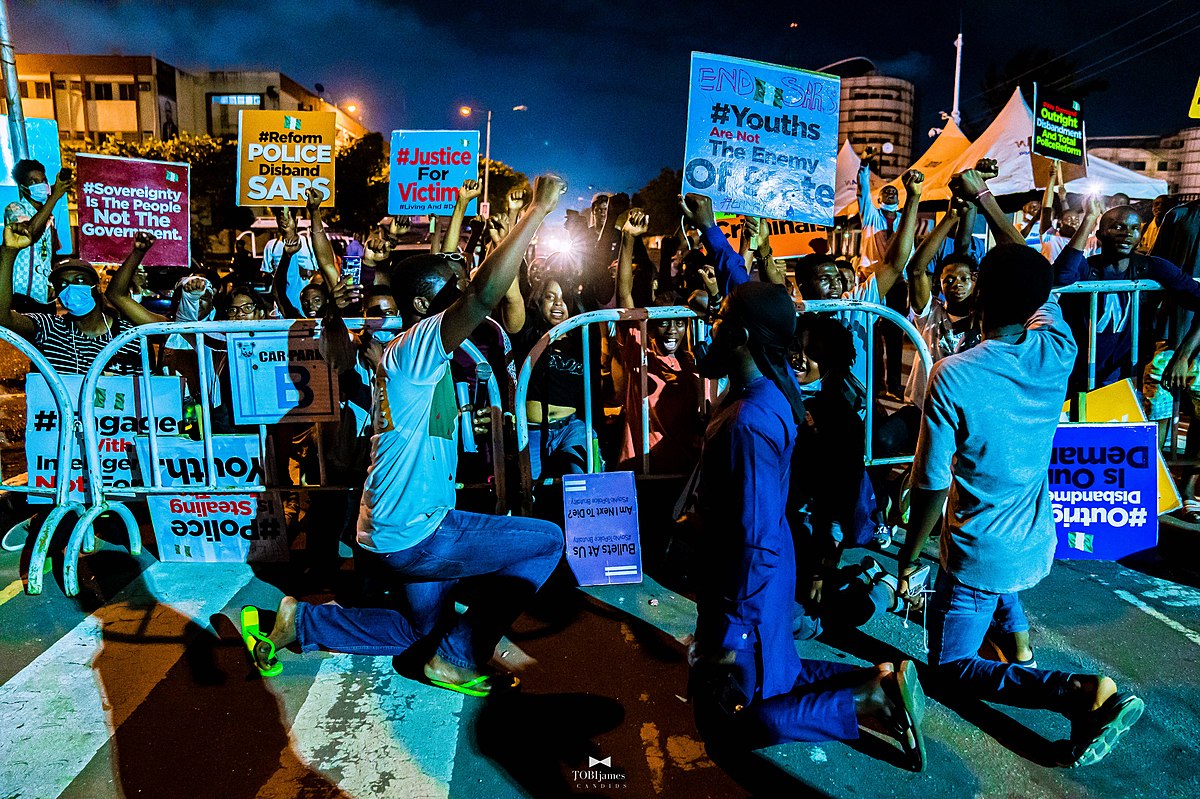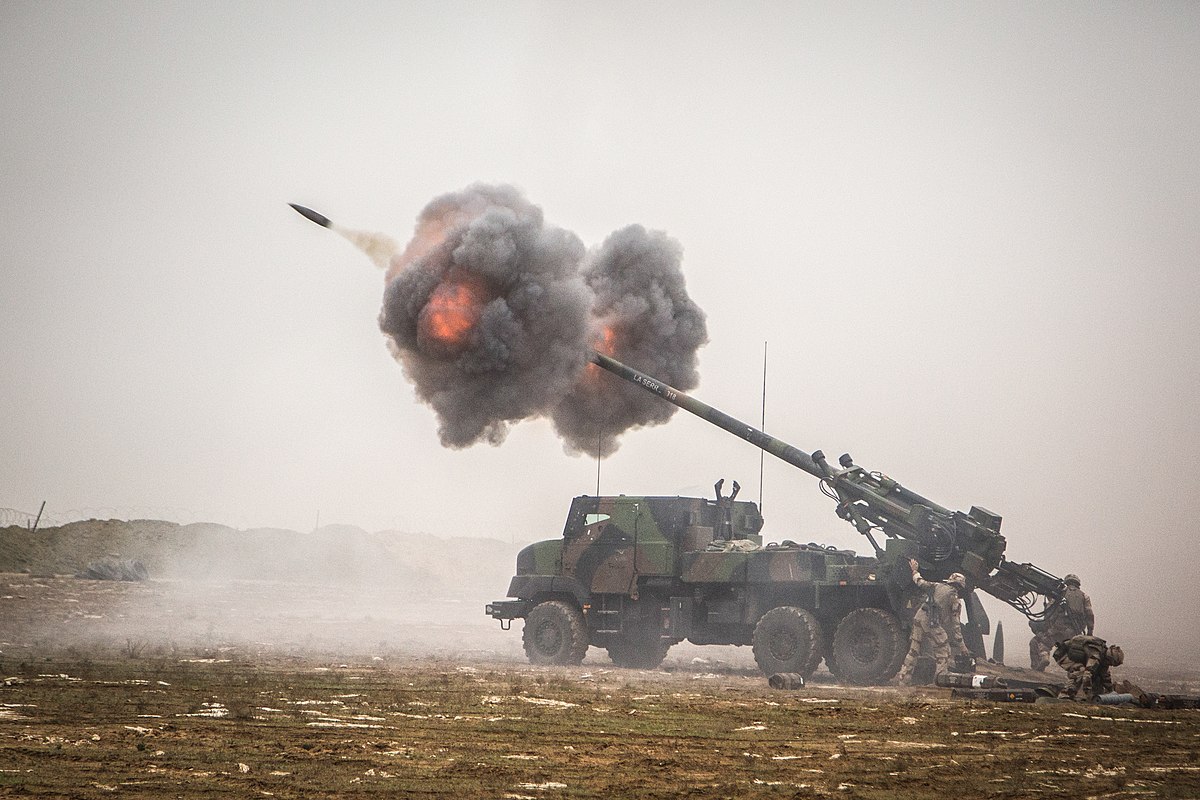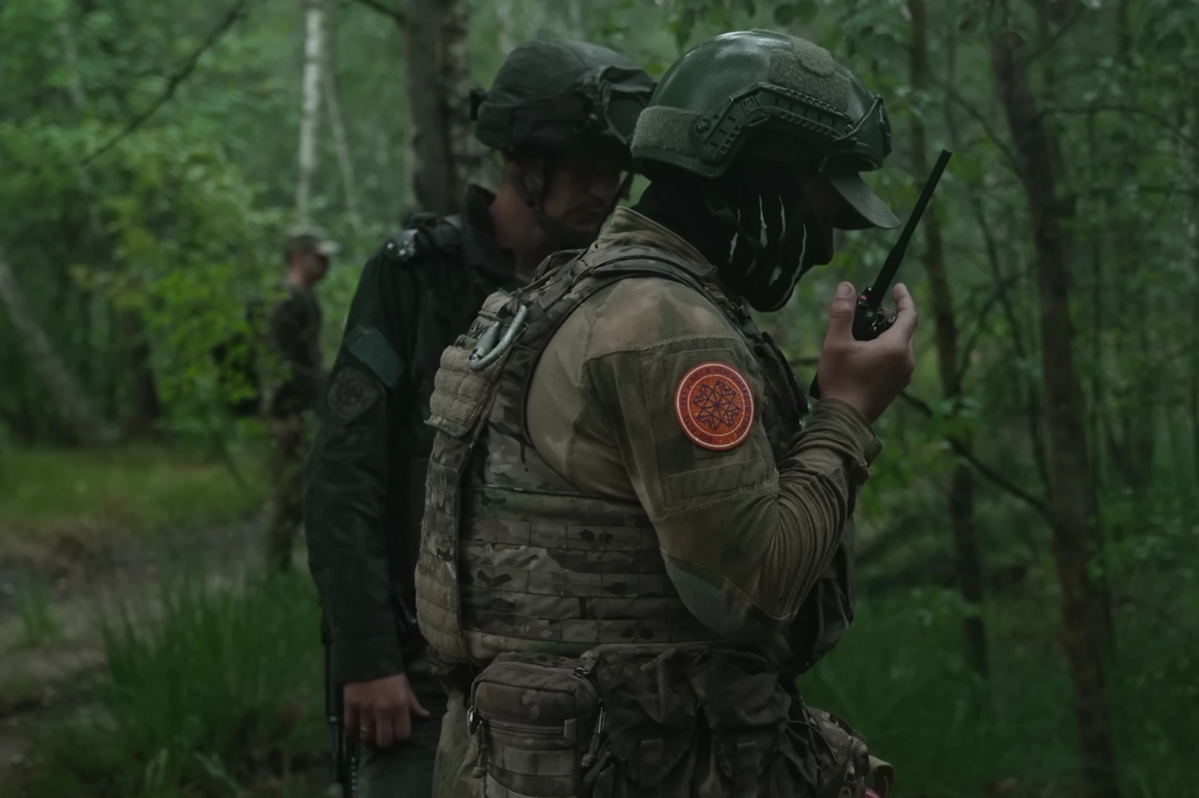Flag of the Special Operations Forces of Ukraine.
“The government of the Republic of Niger, in total solidarity with the government and people of Mali, has decided in all sovereignty to sever diplomatic relations between the Republic of Niger and Ukraine with immediate effect.”
Allegations of an “African Front” being opened in Russia’s war on Ukraine have caused multiple nations in the Sahel to sever diplomatic relations with Ukraine as African and Russian leaders accuse Ukraine of supporting terrorist organizations. According to the first excerpted article from French daily Le Monde, Niger and Mali ceased diplomatic relations with Ukraine on 7 August 2024. The decision was made in response to separatist and jihadist fighters in Mali killing dozens of Africa Corps (formerly Wagner Group) and Malian military personnel fighting in northeastern Mali. In the wake of the battle, Andriy Yusov, the press representative of the Main Directorate of Intelligence of the Ukrainian Ministry of Defense, stated: “The fact that the rebels received the necessary data that allowed them to successfully carry out an operation against Russian war criminals has already been observed by the whole world. Of course, we will not disclose the details.”[i] While this is not a direct admission of Ukrainian involvement in the Sahel, Moscow has unsurprisingly sided with Niger and Mali, condemning Kyiv.
Recent actions by Mali and Niger have sparked discussion that a proxy war could be starting in Africa between Russian-backed militaries and separatist groups accused of being backed by Ukraine. According to the second excerpted article from the Africa-based think tank, Institute for Security Studies (ISS), there are likely far more significant geopolitical implications for Africa than regional conflicts between warring tribes and jihadist groups. Russia’s information campaigns in numerous nations have been widely reported on. However, recently, Ukraine’s special envoy for Africa and the Middle East, Maksym Subkh, announced new embassies throughout Africa to help combat the influence of Russia’s Africa Corps. Ukrainian intervention against Russia, indirectly through support or through kinetic operations, would not be unheard of. ISS also reported that Ukrainian special forces were deployed to operate in Sudan to support the Sudanese Armed Forces fighting against Africa Corps mercenaries and allied Rapid Support Forces.
Mali, Niger, and several other nations in the Sahel have faced complex security issues stemming from armed rebellion to radical jihadism and foreign influence for several years. The possible expansion of the Russia-Ukraine war to other portions of the globe, such as Africa, has received mixed reactions. The Economic Community of West African States, a political and economic union of fifteen African nations, including Burkina Faso, Benin, Mali, and Niger, condemned any foreign influence and the expansion of geopolitical events to Africa.[ii] Others may view any attempt to combat Russian expansion and aggression as a net positive. However, if Ukraine does become openly involved in attempting to subvert Russian expansion in Africa, it will undoubtedly cause a shift in the momentum of ongoing armed conflicts in the region. Though, with multiple armed groups active in Sahelian states with varying motivations and allegiances, it would be difficult to limit the extent of foreign aid and influence to exclude all jihadist groups.
Sources:
“Le Niger rompt « avec effet immédiat » ses relations diplomatiques avec l’Ukraine, deux jours après le Mali (Niger breaks off diplomatic relations with Ukraine “with immediate effect”, two days after Mali),” Le Monde, 7 August 2024. https://www.lemonde.fr/afrique/article/2024/08/07/le-niger-rompt-avec-effet-immediat-ses-relations-diplomatiques-avec-l-ukraine-deux-jours-apres-le-mali_6270883_3212.html
Niger announced on Tuesday, August 6, that it was breaking off diplomatic relations with Ukraine “with immediate effect,” two days after Mali accused Kyiv of “supporting” “terrorist groups” after a heavy defeat of the Malian army at the end of July during fighting with separatists and jihadists.
“The government of the Republic of Niger, in total solidarity with the government and people of Mali, has decided in all sovereignty (…) to sever diplomatic relations between the Republic of Niger and Ukraine with immediate effect,” declared the spokesman for the Niger government, Colonel-Major Amadou Abdramane, in a statement read on public television.
At the end of July, separatists and jihadists claimed to have killed dozens of members of the Russian paramilitary group Wagner and Malian soldiers during fighting in Tin Zaouatine (north-east Mali). This defeat is the heaviest suffered in a battle by the Wagner Group in Africa, analysts agree.
A Ukrainian military intelligence official, Andri Yusov, had implied that Kiev had provided information to the rebels so they could carry out their attack. “The government of the Republic of Niger learned with great shock and deep indignation about the subversive and unacceptable remarks of Mr. Andri Yusov, spokesman for the Ukrainian military intelligence agency ,” Abdramane said on Tuesday…
“The fact that the rebels received the necessary data that allowed them to successfully carry out an operation against Russian war criminals has already been observed by the whole world. Of course, we will not disclose the details. More information to come here too,” Yusov told Ukrainian television. The video of his statement was relayed by the Ukrainian ambassador to Senegal.
Following these statements, Mali announced the severance of its relations with Ukraine, which on Monday rejected the accusations and regretted the decision, which it considered “hasty” . The Ukrainian Foreign Ministry affirmed that Kyiv “unconditionally adheres to the norms of international law” and “reserves the right to take all necessary political and diplomatic measures in response to unfriendly actions.”
Peter Fabricius, “La guerre de la Russie contre l’Ukraine s’étend-elle à l’Afrique? (Is Russia’s War on Ukraine Spreading to Africa?),” Institute for Security Studies (pan-African think tank), 9 August 2024. https://issafrica.org/fr/iss-today/la-guerre-de-la-russie-contre-l-ukraine-s-etend-elle-a-l-afrique.
Russia appears to be stepping up its multi-pronged offensive to increase its influence in Africa, while Ukraine is fighting back, threatening to turn the continent into a major proxy battlefield.
Russia appears to be stepping up its multi-pronged offensive to increase its influence in Africa, while Ukraine is fighting back, threatening to turn the continent into a major proxy battlefield. Military skirmishes erupted last week in Africa, when Moscow’s Wagner force (now Africa Corps) suffered heavy losses in a battle against Tuareg separatists and jihadists in Tinzawatene, Mali. The setback marks a major blow to the Kremlin, which appeared to be expanding its presence or at least countering Western efforts to regain ground.
After last week’s intense battle in Tinzawatene, in which Tuareg separatists claim to have killed 84 Wagner fighters and 47 Malian soldiers, officer Andriy Yusov, a spokesman for Ukraine’s intelligence agency, said Malian rebels had received the “necessary” information to carry out the attack, hinting at possible Ukrainian involvement. In response, Mali’s military junta severed diplomatic relations with Ukraine, accusing it of supporting “international terrorism.” Ukraine denied the accusation, saying Mali acted hastily, without investigating the incident or providing evidence of its involvement. The military junta of Mali’s neighbor Niger has also severed diplomatic ties with Kiev. Russia has accused Ukraine of opening a new front in Africa, an accusation tinged with irony.
The consequences of the war between Russia and Ukraine could be serious for Africa. The Economic Community of West African States condemned “foreign interference in the region […] and any attempt to drag the region into the current geopolitical confrontations.” The African Union did not respond. This development may not be entirely new in Africa. For Ramani, if Ukraine did indeed contribute to Wagner’s defeat in Mali, it is part of his two-pronged strategy in Africa. On the one hand, diplomatic openness with the establishment of new embassies and, on the other, “discreet special operations like those observed against the RSF in Sudan.”
The “RSF” refers to the Rapid Support Forces, which are engaged in a violent conflict with the Sudanese Armed Forces (SAF). It is well known that Russia, including Wagner, supports the RSF. In February, the Kyiv Post reported that Ukrainian special forces were operating in Sudan, supporting the Sudanese Armed Forces against Wagner’s forces, allied with the RSF. For Ramani, Wagner’s defeat in Mali will lead to introspection. Wagner’s forces will likely be more controlled by the state, “like the process going on in Libya.”
Notes:
[i] The Ministry of Foreign Affairs of Ukraine responded to Niger’s decision in a press release, denying support for terrorist organizations. Located here: “Statement by the Ukrainian Foreign Ministry regarding the decision of the authorities of the Republic of Niger to sever diplomatic relations with Ukraine,” Ministry of Foreign Affairs of Ukraine, 8 August 2024. https://mfa.gov.ua/fr/news/zayava-mzs-ukrayini-shchodo-rishennya-vladi-respubliki-niger-rozirvati-diplomatichni-vidnosini-z-ukrayinoyu
[ii] ECOWAS has a long-standing history in Africa, founded in 1975, and contributes to many social and economic projects including election monitoring, clean water initiatives, human development, regional security, and more. For more information on ECOWAS visit: “About ECOWAS,” ECOWAS, Updated 2024. https://www.ecowas.int/about-ecowas/
Image Information:
Image: Flag of the Special Operations Forces of Ukraine.
Source: https://commons.wikimedia.org/wiki/File:Flag_of_the_Special_Operations_Forces_of_Ukraine.svg
Attribution: Public Domain
